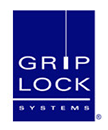Industry News
Strong T12 Lamp Sales, Upcoming Ballast Phase-Out Create Lighting Upgrade Opportunity
September 07, 2009
Despite strong, on-going sales of 4-foot T12 fluorescent lamps, the magnetic ballasts commonly used for the lamps’ operation will start becoming relics of the past on July 1, 2010, when their continued manufacture for commercial and industrial applications becomes prohibited by U.S. Department of Energy (DOE) ballast efficiency regulations.
According to the National Lighting Bureau, the July 1, 2010 date marks the last step of a multi-step phase-out that began on July 1, 2005, the date when ballast manufacturers could no longer sell T12 magnetic ballasts for use in new fixtures with full-wattage T12 lamps. March 31, 2006 was the last day lighting-fixture manufacturers could incorporate the ballasts in new fixtures with full-wattage T12 lamps. And on July 1, 2010, the manufacture of T12 magnetic ballasts solely for replacement purposes will cease.
National Lighting Bureau Vice Chair Susan Bloom (Philips Lighting and Philips Lighting Electronics) commented, “T12 fluorescent technology is 70 years old and is generally considered outdated when compared to the far more efficient T8 and T5 fluorescent technologies currently available. Nonetheless, industry sales data reveal that less-efficient T12s still account for three out of every ten four-foot fluorescent lamps sold in the U.S. This means that literally millions of existing T12 fluorescent lighting sockets will have to be upgraded sooner rather than later, because the lack of these replacement ballasts will make T12 lighting harder to maintain. The good news is that owners and managers of America's commercial, industrial, and institutional facilities who still rely on T12 lighting can rest assured that there are high-performing and more energy-efficient lighting technologies readily available to them that will also serve to support our national goals of energy independence and a clean environment.”
Ms. Bloom explained that facility owners and managers will reap significant benefits from energy-efficient lighting upgrades. These benefits include energy savings of as much as 48%, attractive 2- to 3-year simple paybacks, reduced maintenance costs and concerns, and the knowledge that they are supporting the environment and promoting sustainable lighting design. They can also derive additional benefits if their lighting upgrades qualify for the federal tax incentives available through the Commercial Building Tax Deduction [CBTD] established by the Energy Policy Act of 2005. Some states also offer incentive programs and, in many areas of the nation, utility incentive programs also are available. “Very simply, there has never been a better time for end users to capitalize on their lighting upgrade opportunities,” Ms. Bloom said.
Managers of facilities whose lighting fixtures incorporate T12 lamps and magnetic ballasts can select from several upgrade alternatives. These include replacing the existing magnetic ballasts with electronic ballasts; modifying the fixtures to accept T8 lamps and electronic ballasts; and replacing the existing fixtures altogether, relying on contemporary T8 or T5 units with electronic ballasts, or, possibly, a different technology altogether.
“The input of an experienced lighting professional will be of great value here,” Ms. Bloom said. “A carefully managed project designed and implemented by knowledgeable, skilled
professionals will help ensure realization of anticipated results and keep facility disruptions to a minimum.”
Ms. Bloom noted that, as part of the detailed facility audit that typically precedes an upgrade, an experienced lighting-system designer or industry professional should be able to identify effective upgrade solutions and prepare a cost-benefit analysis of each. She added that upgrades also create the opportunity to “provide the improvements in lighting quality that can boost output and employee morale, reduce work-related errors, promote increased retail sales, enhance safety and security, and elevate aesthetics and ambiance.” An interactive list of lighting-system designers who provide service throughout the United States is available at the NLB website: www.nlb.org. An interactive list of CBTD lighting-system certifiers is also available there. Valuable information also is available through the enLIGHTen America initiative created by Bureau-Sponsor National Electrical Manufacturers Association at www.nemasavesenergy.org.
Ms. Bloom pointed out that DOE exempted three types of T12 magnetic ballasts from the rule:
• T12 dimming ballasts that dim to 50% or less,
• two-lamp F96T12HO ballasts designed for outdoor sign applications where temperatures may fall to as low as -20F, and
• magnetic ballasts with power factors less than 0.90 designed and labeled for residential building applications.









































